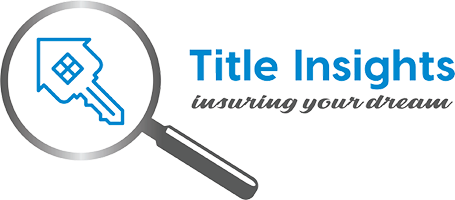
Understanding Homeowners Insurance: More Than Just a Safety Net
Homeowners insurance is often viewed as a necessary evil, a cost that every homeowner must bear to protect their most significant investment. However, understanding the nuances of homeowners insurance can not only save you money but also provide peace of mind in a state like Florida, where weather-related events can lead to costly damages. The average annual premium for homeowners insurance in Florida is considerably higher than the national average, primarily due to the risk of hurricanes, flooding, and other natural disasters.
When shopping for homeowners insurance, it’s essential to consider not just the premium but also the coverage limits, deductibles, and exclusions. Many policies have specific clauses related to hurricane damage, which can significantly impact your coverage. For instance, some policies may have a separate hurricane deductible that is higher than the standard deductible. Understanding these details can prevent unpleasant surprises when disaster strikes.
Additionally, many homeowners overlook the importance of reviewing their policy annually. As property values change and home improvements are made, the coverage amount may need adjustments to ensure that you are adequately protected. Engaging with an insurance agent who specializes in Florida properties can provide insights into the best options for your situation.
Another crucial aspect is the claims process. Familiarizing yourself with how to file a claim, what documentation is needed, and the timeline can make a significant difference in how quickly you can recover from a loss. Building a relationship with your insurance provider and understanding their claims process can lead to a smoother experience when you need it most.
Decoding Loan Origination: The Heartbeat of Your Home Financing
Loan origination is the process that initiates your mortgage journey, encompassing everything from application to approval. In Florida, where the real estate market can be competitive, understanding this process is vital for both first-time homebuyers and seasoned investors.
The first step in loan origination is pre-qualification, a process that evaluates your financial situation to determine how much you can borrow. This stage is crucial because it gives you a clear picture of your budget and strengthens your position when making offers on homes. Lenders will assess your credit score, income, debt-to-income ratio, and other financial factors during this phase.
Once pre-qualified, you can move on to the formal application process. Here, you’ll provide detailed information about your finances, employment, and the property you wish to purchase. It’s essential to be thorough and honest in your application, as any discrepancies can lead to delays or denials.
After the application is submitted, the lender will conduct an underwriting process, which involves a comprehensive review of your financial and credit information. This phase can take anywhere from a few days to several weeks, depending on the lender and the complexity of your application. Understanding this timeline can help you manage your expectations and plan accordingly.
Finally, once approved, you will receive a loan estimate that outlines the terms of your mortgage, including interest rates, monthly payments, and closing costs. Review this document carefully and don’t hesitate to ask your lender questions. Ensuring you understand every aspect of your loan is critical to a successful home purchase.
The Heavy Weight of Property Taxes: What Every Florida Homeowner Should Know
Property taxes in Florida can be a significant expense that often catches new homeowners off guard. Florida’s property tax rate is generally around 1.02%, but this can vary by county and municipality. Understanding how property taxes are assessed and calculated is essential for budgeting and financial planning.
Property taxes are based on the assessed value of your home, which is determined by the county property appraiser. This value can fluctuate based on market conditions, improvements made to the property, and other factors. Homeowners should be aware that they have the right to contest their property tax assessments if they believe their home has been overvalued. This process typically involves presenting evidence to the local property appraiser’s office and can result in a reduction of your tax bill if successful.
Moreover, Florida offers several exemptions that can help reduce property taxes. The Homestead Exemption, for instance, allows homeowners to exempt a portion of their home’s value from taxation, significantly lowering their tax burden. Other exemptions, such as those for senior citizens, disabled individuals, and veterans, can also provide financial relief. It’s crucial to research these exemptions and ensure you apply for any for which you qualify.
Additionally, property taxes are typically due annually, with the deadline often falling on March 31st of the following year. However, many counties offer discounts for early payment, incentivizing homeowners to pay their taxes upfront. Understanding these payment options and their implications can help you save money in the long run.
Interest Rates: The Invisible Hand Shaping Your Home Investment
The interest rate on your mortgage is one of the most critical factors influencing your monthly payments and overall financial health as a homeowner. In Florida, where the real estate market is particularly dynamic, keeping an eye on interest rates is essential for savvy buyers and investors alike.
Interest rates are influenced by a variety of factors, including the Federal Reserve’s monetary policy, inflation rates, and economic conditions. When the economy is booming, interest rates tend to rise as the demand for loans increases. Conversely, during economic downturns, rates typically decrease to stimulate borrowing. Understanding these trends can help you time your home purchase or refinance for optimal savings.
Moreover, it’s essential to recognize the difference between fixed-rate and adjustable-rate mortgages (ARMs). A fixed-rate mortgage locks in your interest rate for the life of the loan, providing stability and predictability in your monthly payments. On the other hand, an ARM offers a lower initial rate that can adjust periodically based on market conditions. While ARMs can be attractive for some, they carry the risk of potential increases in payments over time, making them less suitable for long-term homeowners.
In conclusion, keeping abreast of interest rate trends and understanding how they impact your mortgage can empower you to make informed decisions about your financing options. Consulting with a financial advisor or mortgage specialist can provide additional insights tailored to your specific situation.
Closing Costs: The Hidden Fees That Can Surprise First-Time Buyers
Closing costs are often an overlooked aspect of the home-buying process, yet they can add up to thousands of dollars. These costs typically range from 2% to 5% of the purchase price and include various fees associated with finalizing the transaction. Understanding these costs can help you budget better and avoid financial surprises at the closing table.
Some common components of closing costs include:
– **Loan origination fees:** Charged by the lender for processing your loan application.
– **Appraisal fees:** Paid to a third-party appraiser to assess the property’s value.
– **Title insurance:** Protects against any issues with the property title that might arise.
– **Escrow fees:** Charged for managing the funds during the closing process.
– **Recording fees:** Paid to the county for recording the property deed.
It’s crucial to ask your lender for a detailed breakdown of closing costs early in the process to avoid surprises. Additionally, many sellers may be willing to negotiate to cover a portion of the closing costs, making it essential to discuss this during the offer phase.
Understanding the various aspects of homeownership—from insurance and loan origination to property taxes, interest rates, and closing costs—can empower you as a homeowner in Florida. By arming yourself with knowledge, you can navigate the complexities of the real estate market and make informed decisions that align with your financial goals.
If you have any questions about homeowners insurance, loan origination, property taxes, interest rates, or closing costs, don’t hesitate to [contact us](#) today. Our team of experts is here to help you every step of the way on your journey to homeownership.
